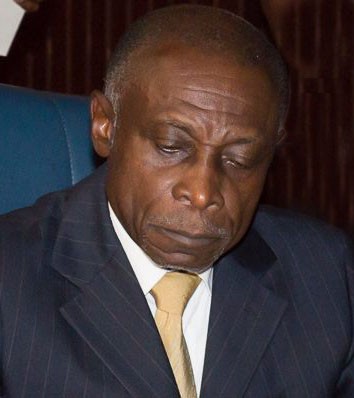Guyana’s Honorary Consul globally are not paid a salary or given any tax waivers and do their the work almost voluntarily, making the best of their personal time and resources for which the Ministry of Foreign Affairs is grateful, Minister of Foreign Affairs Carl Greenidge says.
“In terms of pay you give them a stipend, and the stipend is in the region of US$500 (per month) to cover expenses, unless the expenses are exceptional and $500 is not something to shout about,” Minister Greenidge told a press conference yesterday.
Further, he added, “None of them is perfect, more so that you don’t pay the staff.”
Greenidge spent a great deal of his time dealing with the issue, as he pointed to recent reports in the Kaieteur News about complaints received about services at the Miami Consulate and of its Honorary Consul Ramzan Roshanali.

The Foreign Affairs Minister explained that he would not encourage dealing with personal complaints of that nature, or any other honorary consul at the press brief, but he wanted to speak from a holistic perspective of the operations of honorary consul for this country.
“The work pursued by the Ministry of Foreign Affairs abroad is normally undertaken by Ambassadors and Consuls General who are full-time employees of the Government of Guyana. Due to financial constraints most countries also utilize Honorary Consul. The work of these Consulates relate to matters such as visas, and passport processing, assisting Guyanese with interfacing with the host Governments and their agencies such as the police, hospitals, notarizing documents, helping stranded Guyanese, among others. It is at times very demanding work and when account is taken of the fact that it is unpaid, can prove to be too much for even the most enthusiastic and nationalistic of persons,” he informed.
But he said that a “common phenomenon” in the Guyanese diaspora is to complain about all consulates, honorary and otherwise, particularly in the United States of America.
“Whilst not doubting the validity of these concerns, it is also the case that many complainants labour under the misapprehension that this is a lucrative undertaking and therefore there is often some resentment about being excluded,” the minister said.
Greenidge noted that he was particularly concerned about two headline stories in the Kaieteur News and that it could add to confusion and misunderstanding by readers.
“The Honorary Consul, for example, has no say in the number of Consulates and their inconvenient placement. Additionally, they are not employees of the state and there is no obligation to adhere to rules about employment. We, for example, use private business persons or persons in professions, in order to minimize or to capitalize on overheads such as, office space and clerical staff who can carry out consular work at no additional cost to the firm. Guyana therefore does not have to pay for such services,” he noted.
“Honorary Consul, for the most part, are not paid a salary. An honorarium or stipend is paid towards inconvenience. Whatever name is used the payment is intended to cover the costs incurred in carrying out the work of the Government at the Consulate. Labour therefore is not really paid. This should be taken in account when criticisms are being made,” he stressed.
Noted too, was that while persons complain about the performance of their respective honorary consul, when they hear that the position was one of volunteer work they mostly refuse. In some instances, persons are willing to be appointed but do not have the necessary resources needed for the scope of the job.
“When the president was in Trinidad in 2016, the head of the administration of French Guiana had asked that we appoint somebody there because there are a lot of Guyanese there facing many difficulties, on the health front and others. It is the same in many Caribbean countries. You have to get from the government [of that country] if the person is in good standing, they have to get police clearances and all of that. They have to get premises, notwithstanding what the picture may show, which reach certain requirements. It can’t be premises where a Guyanese comes to see you for a passport and you take them in your bedroom, for example. There has to be a clear sign, all these things the honorary consul know and they are cleared on that basis. All of these the honorary consul know,” he added.
Currently there are 29 Guyanese honorary consul worldwide and the ministry plans to add another five shortly.





